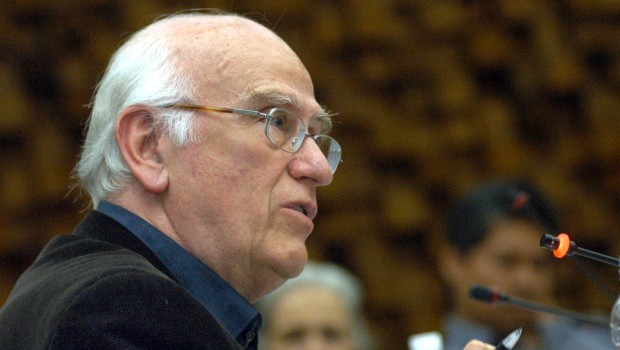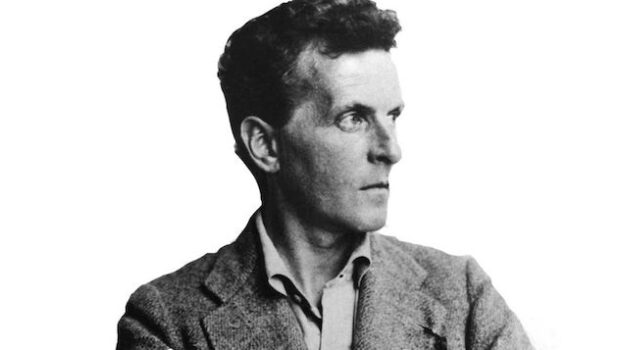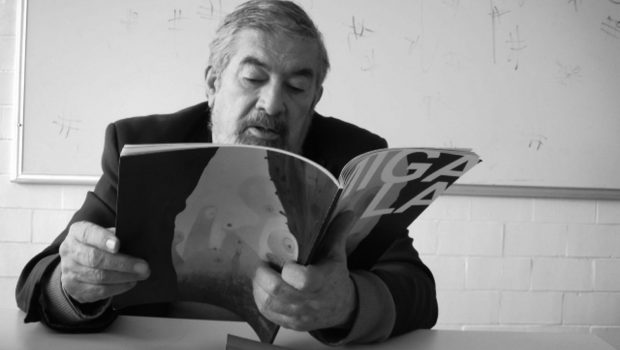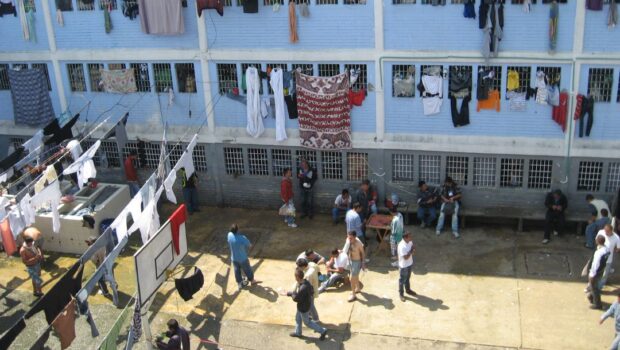Apropos Redeemers
Roger Bartra
English translation by Tanya Huntington
The history of 20th century ideas contains fascinating moments that mark the crossover of certain revolutionary writers and thinkers into a different, new condition, one that is more difficult to define, one that may be liberal, utopian, libertarian, postmodern, or religious. This conversion generally occurs at times when political tension or crisis has motivated intellectuals to meditate on their responsibility for and participation in political and social trends. In his magnificent book Redeemers (Debate, Mexico, 2011), Enrique Krauze has taken it upon himself, among other things, to examine some of these conversion processes or scrutinize the motives that prevented their transformation. This is a collection of biographies of Latin American thinkers and leaders; each one is a vivid, critical piece, imbued with a personal enthusiasm for facts and ideas. Krauze’s prose is lucid and his narrative, riveting. In some cases, he is interested in observing the transit between communism and liberalism. How does one go from redemption to democracy? How does one renounce revolution and embrace liberalism? What triggers this disenchantment? The presence or absence of a transition process has been broadly debated and researched, especially in Europe. The life and works of intellectuals such as André Gide, Arthur Koestler, Jean-Paul Sartre, Jorge Semprún, Ignazio Silone and many others have been examined at great length. What happens to the spirit of a person who has abandoned some of the great 20th century myths associated with redemption, such as communism, Marxism, revolution, class struggle, national liberation or the new man? To further reflect on this dilemma, I shall refer to the long chapter Krauze dedicates to Octavio Paz, which is the most extensive and emotionally committed of the entire book. I will not neglect to mention some personal experiences along the way, given that I myself am also implicated in this complex process of abandoning the myth of Revolution.
Octavio Paz underwent a slow conversion that distanced him from the radical convictions of his youth. We can observe another two cases on a parallel, wherein we find the paradigmatic example of an almost perfect transformation (Mario Vargas Llosa) and the situation of a writer who has stubbornly refused to abandon his pro-Castro stance (Gabriel García Márquez). The life of Octavio Paz does not allow itself to be reduced to either of these two extremes, and Enrique Krauze has taken it upon himself to investigate the labyrinthine linkages between Paz and the Revolution. The result of this exploration is one of the most severe critiques ever made of Paz’s political thought; a critique that is, nonetheless, tempered by the great admiration Krauze feels for the poet. According to Krauze, Octavio Paz did not succeed in culminating his liberal crossover and remained a revolutionary to the end. He never fully abandoned his redemptive vocation. Anecdotes can be revealing. In the early 1990s, during a dinner party, José Luis Martínez, a good friend of Paz’s, said to him, “Octavio, you were never actually a revolutionary.” Paz was absolutely outraged. Krauze comments that Paz “had practiced the Revolution through poetry and thought” and considers that there was always a revolutionary flame that the poet kept burning. Thus, Krauze affirms that “liberal democracy could not satiate Paz. It was too insipid and formal.”
 This does not mean Paz would have remained anchored in his Marxism and his proximity to communists from the 1930s and 40s. He hadn’t dared defend André Gide when the French writer was attacked during a writers’ congress in Valencia, Spain for having denounced Stalinist repression. He would always lament this. On the other hand, he did have the courage to confront the dogmatism of Pablo Neruda, who in the 1940s was Chile’s consul in Mexico. However, at the time, Krauze says, Paz “continued to be sentimentally rooted to the rural and Zapatista revolution and, ideologically, to the worldwide Revolution predicted by Marx.”
This does not mean Paz would have remained anchored in his Marxism and his proximity to communists from the 1930s and 40s. He hadn’t dared defend André Gide when the French writer was attacked during a writers’ congress in Valencia, Spain for having denounced Stalinist repression. He would always lament this. On the other hand, he did have the courage to confront the dogmatism of Pablo Neruda, who in the 1940s was Chile’s consul in Mexico. However, at the time, Krauze says, Paz “continued to be sentimentally rooted to the rural and Zapatista revolution and, ideologically, to the worldwide Revolution predicted by Marx.”
In The Labyrinth of Solitude, Paz expresses his love for the Revolution, that “sudden immersion of Mexico in its own being,” all ablaze. Krauze comments that the poet always thought “Mexico had found its path in the Mexican Revolution.” When the Labyrinth was published, José Vasconcelos exalted the fact that Paz had rejected liberalism, but unexpectedly reproached him for having neglected the original democratic impulse of the Revolution, embodied in the ideology of Francisco I. Madero. Krauze observes that this critique was made by a Vasconcelos who sympathized with fascism, not by a liberal, and comments in a melancholy fashion that “Paz would begin to understand the meaning of this critique in 1968.”
Did Paz begin his liberal crossover in 1968? After all those years serving the Mexican revolutionary State, the poet started to have doubts, and he broadcast his dissent by resigning as Ambassador to Mexico in India. But he did not renounce his revolutionary ideals, although these ideals would no longer be, of course, those of the Bolshevik Revolution or the Cuban Revolution. He would become a caustic critic of the avatars of the Mexican Revolution, but he would not abandon it completely. He accepted that the Luis Echeverría administration had “returned transparency to words” and, cloaked by the ambience of openness, he started publishing the magazine Plural with a broad spectrum of writers as contributors. However, Krauze takes note of the fact that the “enraged youth of 1968 were practically unrepresented” in the magazine and observes the absence of Gabriel García Márquez. And yet, Krauze says, Paz was writing for readers on the left, an attitude he would maintain his entire life.
I fully concur with this idea. I would like to recall that over thirty years ago, in 1979, when legal liberalization allowed the communist left to participate in the elections, I wrote an article that imagined Octavio Paz voting for the communist party: “The tragicomic battle that Octavio Paz has waged against Marxism is, clearly, a harsh war against himself. Trapped as he is by the modern Prince, he launches a struggle to bury the communist who subsists, crouching, in the depths of the spirit of Octavio Paz. That is why, despite everything, Octavio Paz has not succeeded in becoming an anti-communist and reactionary intellectual: he continues to be, in spite of it all, an intellectual who writes for the left and whose best ideas and discoveries will be (and are) taken up by the left.” (Unomásuno, June 8, 1979).
To state at the time that Paz was an intellectual who wrote for the left and that the left took up his ideas contrasted with the attitude of many who considered him to be an authoritarian, right-wing intellectual. In 1977, a bitter dispute had taken place with Carlos Monsiváis regarding socialism, and in 1984, his effigy was burned by certain left-wing extremists outside the United States embassy. But there were many people on the left who read and appreciated Paz, even though they criticized him. At the time, the left argued a lot, and everything was subject to criticism. In my article, I also stated that the “blows which Octavio Paz deals out with tenacious regularity to the Marxists are painful, because they are filled with reason.” I continued to criticize Paz’s closeness to the philanthropic Leviathan, but I recognized there were little communist elves still inhabiting the buildings of their militant temples that maintained secret affinities with his poetry.
Krauze believes that Paz stood alone “before a doubly hegemonic culture: governmental nationalism and leftist dogmatism.” I don’t believe this was true: the left as a whole (the dogmatic and nondogmatic) was a completely marginalized, minority phenomenon. It was not hegemonic, not even in the universities, except for the exotic cases of Puebla and Sinaloa. Paz could not or would not accept that there were many “little communist elves” that did appreciate and love him. Nor does Krauze seem to recognize that, behind all the shouting, there was a democratic left that admired the poet’s critical thinking and was found scattered among widely varying habitats, from political parties to universities. Paz had gone to the National Autonomous University of Mexico (UNAM) on June 10, 1971, to give a poetry reading; the act was suspended once news arrived of the aggression committed against students by the so-called “hawks” that the government had organized. After that, he hadn’t wanted to return to the university until 1980, when I convinced him to participate in a roundtable discussion of my book manuscript The Imaginary Networks of Political Power, in which Carlos Monsiváis and Luis Villoro would also participate. Paz accepted on the condition that the act would not be open to the public and that only special guests would attend. The debate was quite animated, and Paz was so contented afterwards that he invited the participants and some other friends to have dinner at his home. There, we decided it was necessary to encourage future debates regarding socialism and the left. So we agreed that the magazine Vuelta, directed by Paz, and El Machete, the magazine of the Communist party that I directed, would publish a call for further high-level discussion. To that end, Vuelta would publish my intervention and that of Villoro, while El Machete would publish those of Monsiváis and Paz. I called Paz soon after to crystallize the agreement. The first thing he told me was that it wasn’t advisable for me to publish him, because the people from the communist party would make things hard for me. I answered that I was willing to take them on and that I was in full liberty to publish whatever I wanted, without censorship. In fact, the General Secretary of the party, Arnoldo Martínez Verdugo, knew about these agreements with Paz and had manifested his support to me: he also believed that Paz formed part of the left. Paz then confessed to me that it wasn’t advisable for him to publish in a communist magazine. And that was how one possibility of opening up dialogue in a civilized fashion faded away.
 But I have to say, Paz was partly right: the most dogmatic, hardline sectors of the party did cause problems and pressured the directors to cut off all subsidies to El Machete; the magazine disappeared after having published only fifteen issues. It ought to be added that the party was about to dissolve into a merger with other leftist forces, some of which looked ill upon a magazine as heterodox as the one I directed. Two leaders of these forces were unequivocally opposed to having El Machete join the new party: the dogmatic Alejandro Gazón Mercado and the nationalist Heberto Castillo.
But I have to say, Paz was partly right: the most dogmatic, hardline sectors of the party did cause problems and pressured the directors to cut off all subsidies to El Machete; the magazine disappeared after having published only fifteen issues. It ought to be added that the party was about to dissolve into a merger with other leftist forces, some of which looked ill upon a magazine as heterodox as the one I directed. Two leaders of these forces were unequivocally opposed to having El Machete join the new party: the dogmatic Alejandro Gazón Mercado and the nationalist Heberto Castillo.
My frustrated plans to encourage a more open dialogue included the possibility of involving Gabriel García Márquez, who had agreed to become a “secret” member of El Machete’s board of editors. He would attend editorial meetings at the offices of the magazine and, as was typical of the Colombian novelist, encouraged and animated our critical, heterodox, and iconoclastic attitudes without accepting that this be made this public, or committing to it in writing. Thanks to the information he transmitted to us, I honed my critical attitude toward the Cuban Revolution, something he has never wanted to openly do himself and for which he has been criticized.
I would like to point out that there were certain aspects of the reformist, revisionist leftist trends that troubled Paz. I coincided with him that the socialist revolutions had evolved into terrible, dictatorial States, but I added the Mexican Revolution to the list of movements that had fostered authoritarian regimes. A great deal of the left began to reject the notion of revolution, substituting it with that of democracy. And this was something Paz wouldn’t easily admit. More to his liking was the Trotskyist interpretation according to which the Mexican revolution had been interrupted, and that it had to be continued. Somehow, Paz had stored in his spirit the idea of a marvelous, ongoing revolution that could surface both in poetry and politics, in art and institutions.
Paz became a reformist, but he was at the same time a revolutionary. This is why Krauze states, “He was not a liberal, but rather a peculiar libertarian socialist. Paz never stopped pondering the political system he had served. To deny that history was to deny the Mexican Revolution.” The poet handed down harsh judgments of Marxism, Leninism, and Bolshevism. However, Krauze indicates, one of the accused was missing at the trial: Octavio Paz himself. The poet realized this and experienced criticism as a perhaps vain attempt to expiate a sin that, as Paz said in 1975, “has stained us and has also, inevitably, stained our writings.” Of course this sin, according to Paz, was infinitely worse when committed by Aragon, Eluard, or Neruda, whose Stalinism led them to lose their souls. (“Dust from those mires”)
In 1985, Paz hoped that in a future context where it would share power with other parties, the Institutional Revolutionary Party (PRI) would return to the past, to its origins, to the vast democratic aspirations of 1910: “To fulfill that aspiration would indeed be to make the Revolution an Institution.” (“PRI: Time’s up”) Three years later, while commenting the 1988 elections, Paz was not convinced that the new party under Cuauhtémoc Cárdenas was defeated by a colossal fraud, one that was merely the continuation of those that had been orchestrated for decades. It seemed to him that the leftist coalition wanted to return to the past and that it was confronting a fraction of the group in power that was younger, more intelligent, and more dynamic (led by Carlos Salinas de Gortari).
Curiously, although Paz had recommended that the left that had congregated around Cárdenas abandon populism, generate a program, modernize, and repudiate totalitarian socialism, it is in the PRI where he built his redeeming hopes: “It must reform, no longer acting as a party of the State in order to transform itself into what it could and must become: a social-democratic, central leftist party.” Of course, as we know, this was precisely what President Salinas de Gortari kept from happening. The social-democratic tendencies were on the other side, in the PRD, and that is where they have developed, although to date they have not succeeded in flourishing or putting an end to populist traditions. The PRI in 2012 is a party that has not renovated itself by proposing anything new, sustaining itself through authoritarianism in the state administrations under its control and further advancing thanks to the failure and weaknesses of other parties, rather than its own creativity.
Krauze states, and rightly so, that during this period Octavio Paz “entered a realm of perplexity.” Doubtless his confusion originated in the living flame of revolutionary redemption that Paz kept alive in his spirit, in a world where faith in the revolution was practically extinguished and in a Mexico where revolutionary ideas were increasingly a myth upheld by conservatives, even taking on the guise of religion.
This religious tone, as Krauze notes very well, had one of its clearest expressions in the intense inaugural speech Paz gave before the international congress that met in Valencia in 1987 in order to commemorate another congress that met 50 years earlier in the same place during the Spanish Civil War, one that the poet had attended. He returned to the location of his original sin in order to carry out an act of expiation. There I ran into Paz again, and he was surprised to find me there; we hadn’t seen one another since 1980, in the UNAM. I hadn’t realized until I arrived that I was the only Mexican aside from Paz who would speak at the congress. He wasn’t expecting this either.
During the congress Paz said, as if he were at confession: “We wanted to be the victims’ brothers and discovered that we were accomplices.” He recalled his Marxist faith of 50 years earlier, mute before the terror that Stalin had unleashed in the Soviet Union. I was moved, given that my origins lay in the Spanish Civil War and my parents were among those victims that Paz had gone over to support. They were forced to flee from Franco, yet they always loathed Stalinism. During my intervention, I said that I was sick of global explanations, disenchanted with the monopolies of coherence and megasystems: “we have been worn down by guilt and sin, we are subject to the class struggle, we are devoured by a reptilian complex, the Thanatos instinct assails us or the power of the Leviathan crushes us.” I most definitely belonged to a generation that did not feel stained by Stalinist sins. I was sick of evoking enemies and of the bellicose tradition that had trapped my parents. Paz had finished his speech by saying that in Madrid, on the university campus, he had heard the voices of Franco’s soldiers through a wall; thus he understood that the enemy was human. I no longer wanted to speak of enemies against whom the Revolution had to be waged, or whom we had to redeem or oblige to publically expiate their faults.
After the Berlin Wall fell, Paz organized in 1990 a grand act of expiation in order to debate and celebrate the sinking of the socialist block, reflecting on the role of intellectuals, on the experience of freedom and to scrutinize the future of the world. I felt represented there by Mario Vargas Llosa when he characterized the Mexican political system as a perfect dictatorship. This angered Paz, given that he defended the regime that had emanated from the Mexican Revolution and said he preferred a more aseptic definition: “hegemonic oneparty rule.” Krauze says rightly that in the final years of his life, “history and chance played strange tricks on him, leaving him perplexed.” His defense of the Revolution is what occasioned most of the poet’s perplexities throughout his lifetime.
Paz was not a political theorist, and therefore he bequeathed us confused, even contradictory notions. The great value of his political essays lies in their metaphoric power, the acuteness with which they synthesized his judgments, the visual beauty of his images and the great refinement of his writing. The motor of his political reflections was fueled by a ceaseless quest for and permanent critique of the concept of Revolution, in all its many incarnations. He perhaps feared that if he abandoned this idea, all the lights he used to illuminate his exploration of politics would go out. This brilliant biographical anatomy by Krauze helps us to understand that his worship of the Revolution left scars on Paz’s thinking, but that at the same time, the traces of old wounds stimulated him to carry on his reflection.
Posted: June 30, 2012 at 4:54 am










